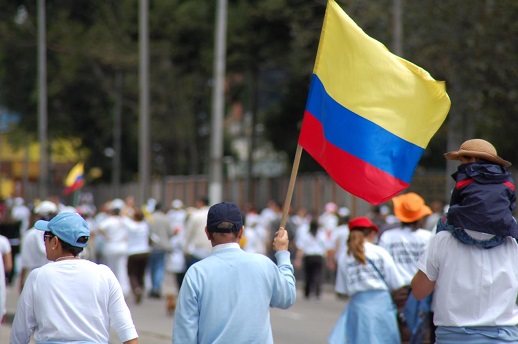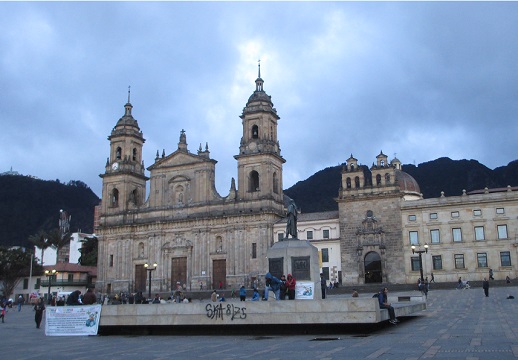
The deal is done. The war, at least on paper, is over. After more than half a century of conflict, the Colombian government has signed a peace agreement with the country’s largest rebel group, the Revolutionary Armed Forces of Colombia – or “the FARC”.
Although the majority of Colombians are celebrating, the Church remains divided on the issue, as World Watch Monitor reported following the initial ceasefire agreement in June.
The urban Church is optimistic, but Christians in rural areas remain sceptical about the promise of peace and reconciliation after so much suffering.
It must be remembered that Colombia has been at war with itself for decades. It will not be that easy to achieve lasting peace.
“There is no room for winners or losers when you achieve peace through negotiations. Colombia wins, death loses,” tweeted chief FARC negotiator Rodrigo Granda after the final signing of the peace accord on 24 August.
But, after a conflict which has claimed the lives of over a quarter of a million people and created the world’s largest population of internally displaced people – nearly 7 million, according to the UNHCR’s end-of-2015 report – not everyone is convinced.
The deal still needs the official approval of the Colombian people, with a vote set for 2 October. Former President Alvaro Uribe Velez, who led a military crackdown against the FARC, is leading the opposition to the deal. He has called current President Juan Manuel Santos a “traitor”.
What does the deal mean for Christians?

Colombia is No. 46 on the 2016 Open Doors World Watch List, which ranks the 50 countries in which it is most difficult to live as an active Christian. Dennis Petri, Latin America analyst for Open Doors, says violence related to organised crime is the main factor behind the persecution of Christians in the region. And in Colombia, there has been no greater exponent than the FARC.
Since its inception in 1964, the FARC has murdered pastors, destroyed churches, extorted congregations, kidnapped missionaries and church leaders, and forcibly conscripted church youth into its ranks to serve as child soldiers.
“Violence in Colombia will continue, despite the peace agreement,” says Petri. “In areas where the government has lost control of public security, drug cartels and illegal armed groups still continue to operate with impunity. This means that these criminal gangs will continue to target Christians.
“It must be remembered that Colombia has been at war with itself for decades. It will not be that easy to achieve lasting peace.
Violence in Colombia will continue, despite the peace agreement.
“My main concern is with the scope of the agreement: it only binds the FARC and the ELN. Other guerrilla and counter-insurgency groups and criminal gangs present in the country will continue to be active. Moreover, there are concerns that the guerrilla members on the ground will not follow the peace agreement negotiated by their leaders and will continue with their very lucrative drug-trafficking business. This implies that the pressure both guerrilla groups are placing on all those who practise their Christian faith in rural communities is not likely to cease in the short term.”
“Peace is not just a ceasefire. Peace is not just the silencing of arms. Peace is education. Peace is figuring out how to coexist and how to build together,” said Jani Silva de Rengifo, from Communities Building Peace in the Territories, at an event in New York on 18 August.
The Archbishop of Tunja and President of the Episcopal Conference of Colombia, Mgr. Luis Augusto Castro Quiroga, has also spoken of his concerns.
“We need a clear sign that the signature of the agreement is not just a symbolic act. The guerrillas must deliver and destroy the weapons publicly,” he said, as reported by Fides. “The people want to immediately see the effects of the agreement.”
Liz Poveda, from Open Doors Colombia, says part of the challenge is to raise awareness that the Church in Colombia continues to come under threat from criminal groups, including the FARC.
“In Colombia there is no official recognition of the persecuted Church,” she said. “There is not state protection to people who are threatened for exercising their faith, as it is given to unionists, politicians and others. We are not for or against the deal; we just want to respond to the need of the persecuted Church. The children of the murdered pastors, their wives, the outcasts, and many more, are already living the post-conflict and ask that their truth is heard and that the martyrs of the Christian Church are not erased from the memory of the country.”
After the war, trauma
Even if the peace deal lives up to the best expectations, decades of armed conflict has left its mark on Colombians.
“Trauma is a condition which occurs during crisis situations in our life. Our brain is designed to generate growth, maturity, and learning. Trauma is an obstacle to this natural process, and as such, it can result in brain stagnation,” said Tatiana Ramirez, a trauma counsellor with Open Doors.
The government does not provide psychological care for victims of conflict, she said, so charities such as Open Doors are seeking to plug that gap.
“People in persecution suffer profound social isolation, especially in environments like ours where neither the government, nor society, is willing to acknowledge the existence of persecution,” Ramirez said.